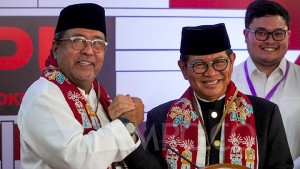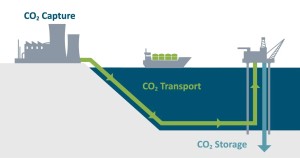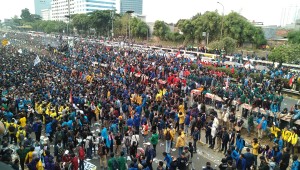Polarization, identity politics continue to threaten democracy in 2024 general elections
With the current configuration of political coalitions and presidential candidates, experts believe that polarization and identity politics will threaten Indonesia's social harmony and democracy as the 2024 general elections approach.
Sirojudin Abbas, a researcher at Saiful Mujani Research and Consulting, said there has been early progress in exploring the potential coalition among political elites and political parties. However, they have yet to reach alliance agreements.
"It is just early progress in their exploration for a potential coalition," he said on October 11, 2022.
Coalition scenarios
Up to today, Abbas said there were two possible political scenarios involving coalitions.
Currently, there are three groupings of political parties. The Golkar Party alliance, which includes the National Mandate Party (PAN) and the United Development Party (PPP), has the most seats in the House of Representatives (DPR) with 25.7% of the total seats. The second coalition is the Gerindra Party and the Nation Awakening Party (PKB), which holds 23% of seats. The third is a potential coalition of the National Democrat (NasDem) Party, the Democrat Party and the Prosperous Justice Party (PKS). Meanwhile, the Indonesia Democratic Party of Struggle (PDIP) is looking for a coalition partner.
"The terms are not yet finalized," Abbas said.
The second scenario involves a shorter axis. PDIP is negotiating with Gerindra and PKB to form a separate axis. Golkar, PAN and PPP will remain as a single coalition. Meanwhile, Nasdem is working hard to persuade the Democrat Party and PKS to join the alliance.
Abbas said the political elites had no interest in the polarization issue due to political competition based on the possible configuration of coalitions. The elites are more concerned with defining their own negotiation space.
"When they discussed the challenge of polarization, they looked at how various political parties reacted to the issue. It is their test in the negotiation room through elite maneuvers rather than the coalition agreement," he stated.
Presidential candidacy
Political elites are currently calculating which figures can accommodate their political interests. According to Abbas' simulation, there are three prominent presidential candidates: Central Java Governor Ganjar Pranowo, Defense Minister Prabowo Subianto and former Jakarta Governor Anies Baswedan.
The simulation of four pairs of candidates revealed that Ganjar would likely win the 2024 presidential election whoever his vice president was. In contrast, Prabowo enjoyed unprecedented popularity for a figure who has run for president three times.
According to the simulation, voters saw Anies as a candidate with more Islamic credentials and a willingness to run Indonesia on Islamic principles. Meanwhile, Ganjar was more moderate and nationalist whereas voters perceived Prabowo as ultra-nationalist.
"This voter base has serious consequences," Abbas said.
A total of 27.6% of respondents believed that Indonesia should be run according to Islamic principles and they opted for Anies and Prabowo. In contrast, 59.8% of respondents believed Indonesia should follow Pancasila state ideology and the 1945 Constitution and they tend to vote for Ganjar.
"In the current context, we can see how radicalism and intolerance could endanger Indonesia's political process in the future. Ideological preferences should be taken into consideration because they could be used to mobilize a base or a political strategy in the 2024 elections," Abbas continued.
Possible polarization
Abbas said political elites used identity politics, radicalism and intolerance to measure and map negotiation space among competing elites.
"It depends on whether or not the elites can negotiate power sharing," he said. If the elites could not reach a power-sharing agreement, they would use identity politics, radicalism and intolerance as political tools against one another.
As a Muslim-majority country, mobilizing voters based on sociological characteristics is easier than mobilizing voters based on rational targets. Using a sociological aspect can be a deciding factor in determining whether a candidate will win or lose an election or whether the winner will take all or not.
According to Abbas, the threat of identity politics and polarization should not be viewed as an imminent feature of Indonesian people. The threat lies in how far political elites use Indonesian society's sociological elements to mobilize voters.
"Elites, in my opinion, use the threat of polarization when they meet with other political party leaders or elites. They, in my opinion, use it as a negotiating point. If we cannot agree, we will use the identity politics card, "he continued.
Abbas said the authority should focus on three enabling factors in the 2024 elections to reduce polarization and the use of identity politics. First, they have the resources to mobilize voters. Second, there is a voter mobilization network, and third, the legitimacy.
Comparison to the US
Yunarto Wijaya, a political observer at the Jakarta-based pollster Charta Politica, believed that social polarization was unavoidable without social engineering. Social polarization occurs in the United States as well. However, in the US, polarization can be transformed into competing values captured and formalized in the Democratic and Republican parties. "It's obvious," he said.
Wijaya explained that the Republican Party is popular among the upper middle class in the US. In contrast, the lower middle class and black people in the US tend to support the Democratic Party. Even if there is polarization, people in the US can formalize it into competing platforms and productive debate.
He said that polarization in Indonesia was limited to basic sociological materials because anyone, be they in Aceh or East Nusa Tenggara, could predict who will win the presidential election without polling. Or, they can predict the Malay or Javanese ethnic groups which candidates. "I believe we can answer the questions without a survey because of the polarization," he continued.
Growing hatred
In the past eight years, the seeds of polarization have grown into hatred, reaching a climax in the 2017 Jakarta gubernatorial election. This social phenomenon, therefore, has created bias in the people's perception of the president's performance. People should evaluate the government objectively. However, the president's approval rating has been influenced by polarization.
"For example, President Jokowi [Joko Widodo] has high approval ratings in the province of Bali but low approval ratings in West Sumatra," Wijaya explained.
In his opinion, Indonesian voters will remain irrational in the 2024 election. That is why Wijaya opposes presidential candidates who give space to groups, mass organizations, communities and parties that have been proven to inflame social differences in previous general elections in the current polarization situation.
"Polarization does exist, but how can we make it more productive? The debate is not about basic sociological material concerning the sectarian issue," he said.
How to mitigate polarization
According to Devie Rahmawati, a lecturer at the University of Indonesia (UI), the social problem of polarization and radicalism arose due to attempts to mobilize the identity issue in political contestation. Even in advanced nations, polarization and exploitation of identity can be dangerous in the digital age due to the so-called computational propaganda.
"Indonesia is well-known for having the rudest society. What will happen if political polarization occurs?" she asked.
During the political year, there will be more polarization and conflict among supporters, which will turn fiercer in the context of insults and accusations. People with different political views avoid sitting close together, even at regular social gatherings and school reunions.
"As an eastern society, Indonesians are a patron-client society. The wagons will follow the locomotive whether it turns right or left," she said.
The morality and conscience of political elites are the key to respond to this polarization. They have both the privilege and the responsibility. To avoid polarization, Indonesia should "punish" political elites who lack moral character and cannot serve as role models for the people by not voting for them.
Already have an account? Sign In
-
Start reading
Freemium
-
Monthly Subscription
20% OFF$29.75
$37.19/MonthCancel anytime
This offer is open to all new subscribers!
Subscribe now -
Yearly Subscription
33% OFF$228.13
$340.5/YearCancel anytime
This offer is open to all new subscribers!
Subscribe now






